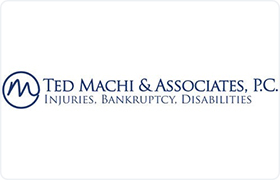Arlington Workout Lawyer, Texas
Sponsored Law Firm
-
 x
x

Click For More Info:
-
Machi & Associates, P.C.
1521 North Cooper Street Suite 550 Arlington, TX 76011» view mapAccident & Injury, Bankruptcy, Social Secuirty We Fight So You Don't Have To
Our professional team of attorneys and staff provide the experience and expertise needed to effectively handle your case.
800-804-0771
 Ted Machi Arlington, TX
Ted Machi Arlington, TX Practice AreasExpertise
Practice AreasExpertise
